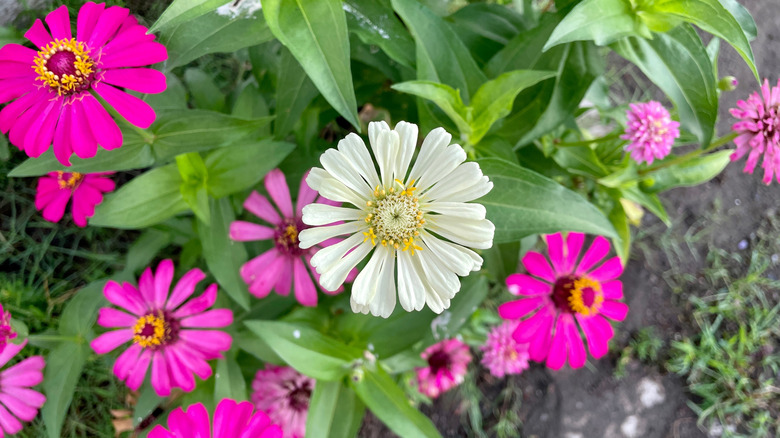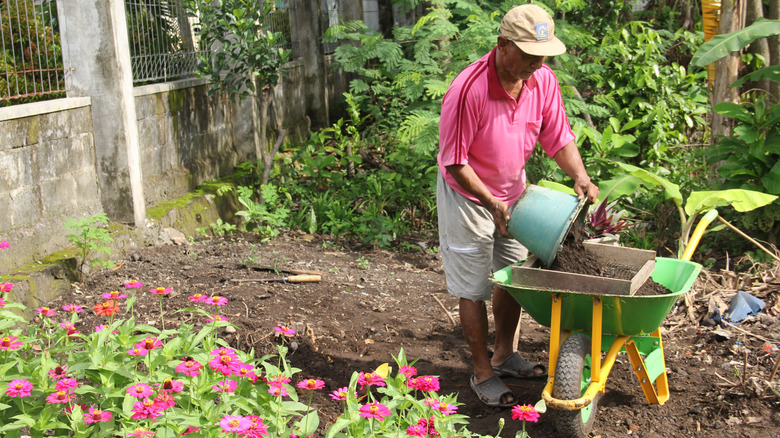Help Your Zinnias Bloom And Flourish All Season Long With One Simple Gardening Tip
If you want to learn how to grow and care for zinnias all season long, there is one gardening tip that should be a priority on your to-do list. Zinnias are fast-growing annuals that love to be fed, and although zinnias are a relatively low-maintenance flower to grow, they still benefit from a little extra help. When first planting your zinnias, it makes sense to use a slow-release, general-purpose fertilizer that has equal parts nitrogen, phosphorus, and potassium. But an important tip for growing zinnias is that you should keep fertilizing them periodically throughout their life cycle.
Once your zinnias are firmly established in your garden, switch to using an all-purpose fertilizer that has more phosphorus to promote flower production. From there, apply an all-purpose fertilizer around your zinnias each month to replenish the nutrients in the soil that they use during their life cycle. By following this simple technique, you can create a butterfly paradise with this fast-growing flower in no time. However, the type of fertilizer you use is just as important as the timing, and erring too far on the over-fertilizing side can bring a new host of problems.
Why monthly fertilization keeps zinnias blooming
Fertilizing monthly replenishes the nutrients in the soil that zinnias use up during their growth cycle. Monthly fertilizing keeps your garden soil topped up with essential nutrients so your zinnias won't suffer any nutrient deficiencies that will stunt their flowering. While fertilizing won't solve every potential issue, ongoing nutrient support from fertilizing will help your zinnias stay healthy and bloom more. This means that your garden will be colorful throughout summer, and perhaps even until the first frost of fall.
Zinnias are heavily reliant on phosphorus and potassium; phosphorus because it promotes flowering and helps roots grow early on in the plant's life, and potassium because it supports a plant's vascular system, which transports nutrients. A water-soluble fertilizer is an easy option for gardeners who are beginners or don't have a lot of time to spend working in their garden. The great thing about water-soluble fertilizers is that they can be applied to your existing compost or soil by using a water can with a sprinkler end instead of having to buy a sprayer.
Beware of the nitrogen content in any fertilizer you use. While nitrogen is also important to encourage healthy leaf and stem growth, too much can reduce flowering, which is the opposite of what gardeners aim for when planting flowers. You'll also want to avoid fertilizing more than once per month, as too much nitrogen will give you bushy foliage instead of the flowers you're looking for. Over-fertilizing is one of the most common zinnia problems that you shouldn't ignore if you want beautiful zinnias in your garden's flower beds.

